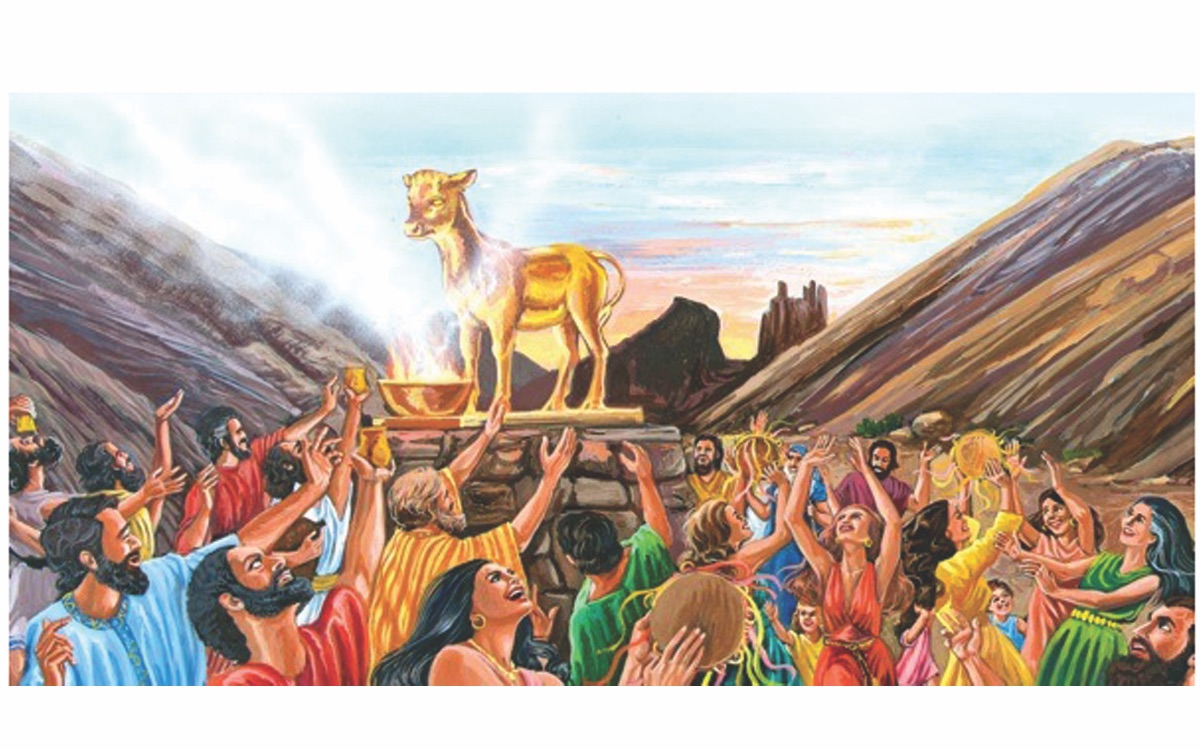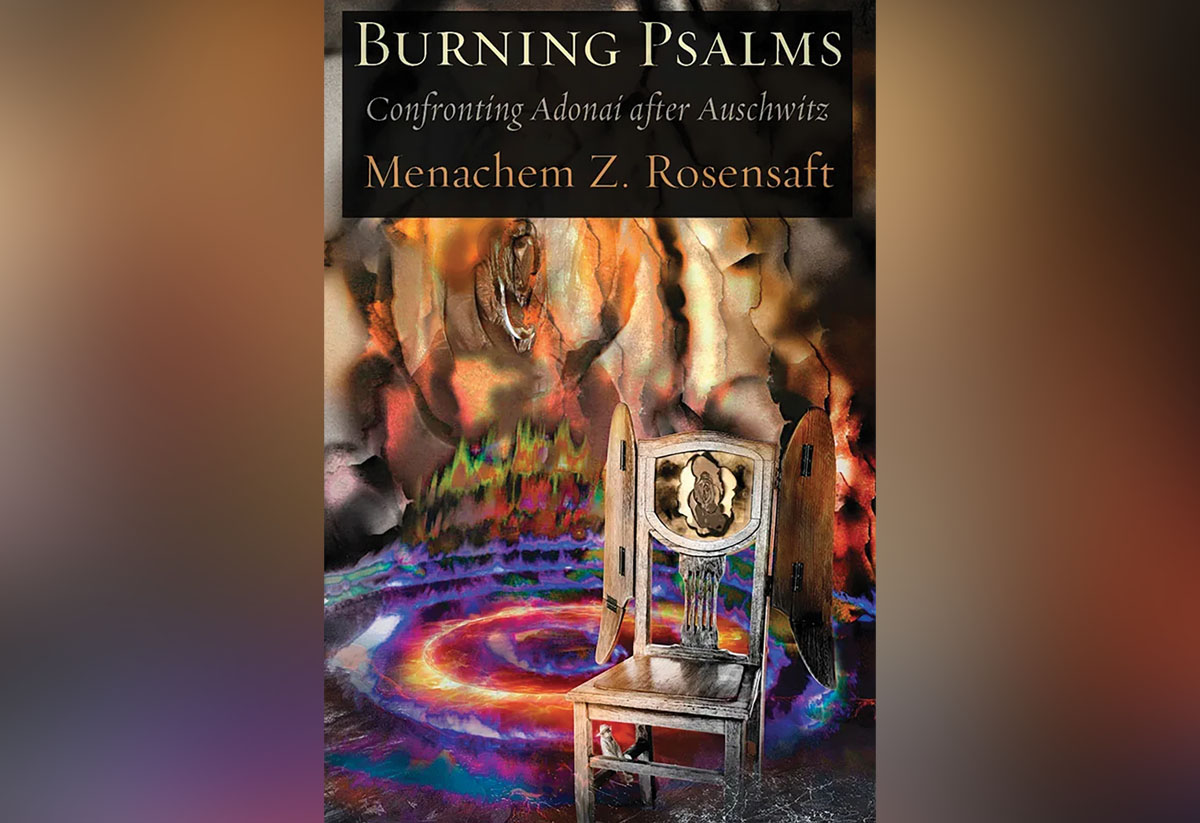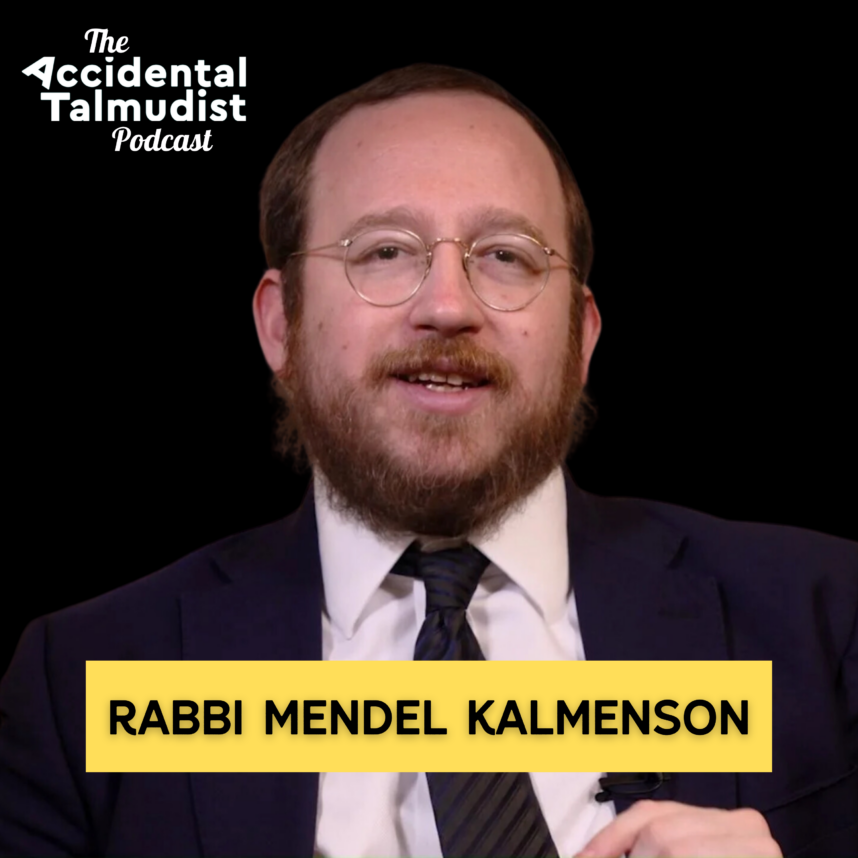
You know the old story about parents leaving the house and then their kids going crazy by throwing wild parties and misbehaving? It also happened in biblical times, when Moses left for his 40-day trip to Mount Sinai to receive the Ten Commandments. Shortly thereafter, the Israelites went a little crazy. Turns out, patience was not one of their greatest virtues. They insisted that Moses’ brother and high priest Aaron make them a god to worship. Aaron built a golden calf that became their new god. When Moses returned to find them worshiping the calf, he got angry. And God was none too pleased, either.
But who do we blame here? The Israelites or Aaron? Was Aaron such an inept leader that he became a puppet of the people, which led to this religious insurrection? Or was he so skilled at the art of persuasion that he convinced the Israelites to indulge in the sin of idol worship? Or should no one be blamed because at the time, they had no idea what God’s commandments would be because they hadn’t yet received them?
These were the issues addressed at the American Jewish University’s Whizin Center on March 11 during its 15th Annual Biblical Trial: The People v. Aaron for Inciting Rebellion, presented by Hillside Memorial Park and Mortuary.
Defending Aaron was Dean of UC Berkeley Law School Erwin Chemerinsky. Representing the people was Laurie Levenson, professor of law and David W. Burcham Chair in Ethical Advocacy at Loyola University Law School. Rabbi Gary Ezra Oren, vice president of the American Jewish University (AJU) and dean of the Whizin Center, kicked off things by engaging the “jury” (the audience in attendance) in an exploration of the biblical text. Judge Burt Pines read the jury instructions: “We don’t worry about the statute of limitations; all the witnesses are dead.”
Levenson made her case for prosecuting Aaron by alleging he was guilty of insurrection — “rising up against authority or government” — and of conspiracy, corruption and collusion, as the leader of the rebellion. She even called a calf to the witness stand (a woman in a calf costume) who pronounced Aaron guilty. Levenson also quoted Exodus 32:25: “Moses saw that the people were out of control since Aaron had let them get out of control.”
“We don’t worry about the statute of limitations; all the witnesses are dead.” — Judge Burt Pines
Aaron had just one job, Levenson argued, to keep things in place until Moses got back, and he didn’t do it. He was a smooth talker. He betrayed Moses and God, and consequently 3,000 Israelites were put to death. This, she said, also almost cost the Jewish people’s relationship with God. Levenson ended by saying, “The choice is simple: If you believe in Aaron, the defendant is not guilty. But if you believe in God, [he is] guilty.”
In defending Aaron, Chemerinsky said, “Levenson is giving you fake news. The calf ‘witness’ was not actually present during the event. You have to separate the calf stuff from the bull. She’s giving you a bum steer!”
Chemerinsky then got serious, offering three reasons why Aaron should be found not guilty:
1. There was no crime against the government because there’s no proof that Moses was the government. In fact, Moses started as a basket case, and was the first person to use the Tablet to communicate with the Cloud. Plus, he was a lawbreaker; he broke all the commandments at once.
2. Aaron was not leading a rebellion; he was, according to Rashi, simply stalling for time until Moses returned. Plus, the golden calf was a pedestal to the Lord, not to a different god. Moses was to blame for killing the 3,000 Israelites. He should have used his words. You can try Aaron for theft of the jewelry, but not rebellion.
3. Aaron’s actions are protected by the First Amendment of the Constitution and freedom of religion. Finally, Aaron couldn’t be inciting illegal activity because Moses hadn’t yet returned with the Ten Commandments. In Levenson’s rebuttal, she put forth that Aaron had a moral and legal duty not to help the people build that calf. She addressed three bubbameisters (old wives’ tales):
1. She countered the defense’s argument that there was no government before the golden calf incident with the Exodus 19:8: “All that the Lord has spoken, we will do.”
2. She countered the defense’s “Aaron was just trying to calm the people down” with God’s “You shall have no other gods before me,” which was said 40 days before the building of the golden calf.
3. She countered the defense’s “This would violate Aaron’s First Amendment rights” with the fact that there was no First Amendment during Aaron’s times.
Rebutting Levenson, Chemerinsky argued, “There is no government in the record and no rebellion against God.” He said that although Moses may have been the governing authority, that didn’t make him the government. Finally, he said, the First Amendment specifies separation of church and state and the premise of the trial was to bring charges against Aaron according the current laws of the United States. “If you buy nothing else I’ve said,” Chemerinsky declared, “at the most, what Aaron was doing was creating an idol.”
Levenson and Chemerinsky were well prepared and argued their cases thoroughly, passionately and humorously. In the end, the voting audience found Aaron not guilty.
Mark Miller is a humorist, journalist and author of the humor essay collection “500 Dates: Dispatches From the Front Lines of the Online Dating Wars.”






















 More news and opinions than at a Shabbat dinner, right in your inbox.
More news and opinions than at a Shabbat dinner, right in your inbox.